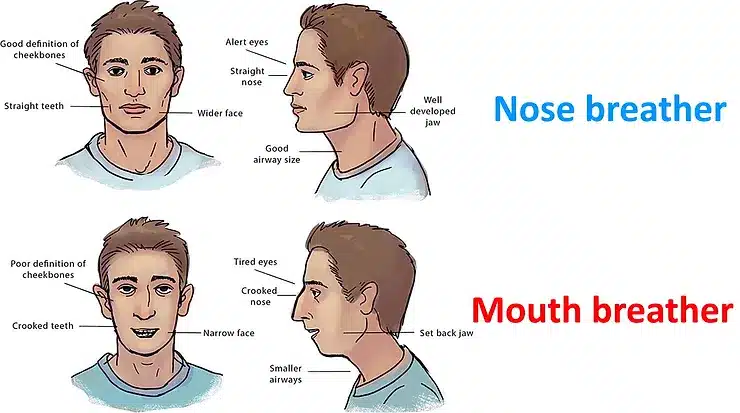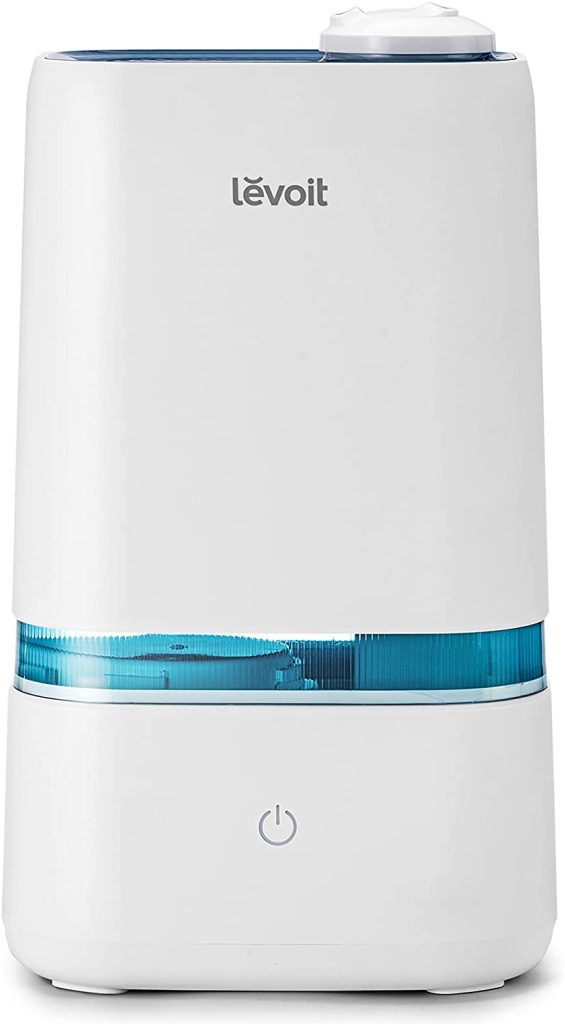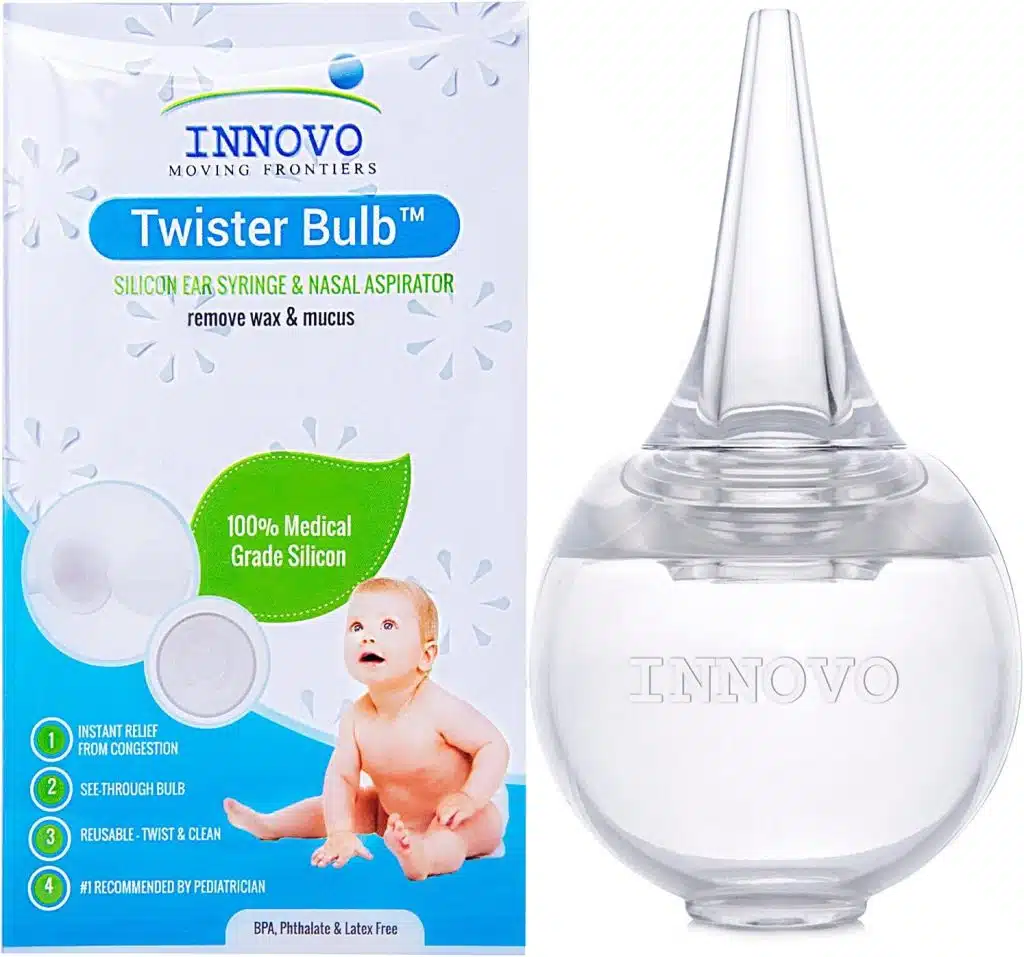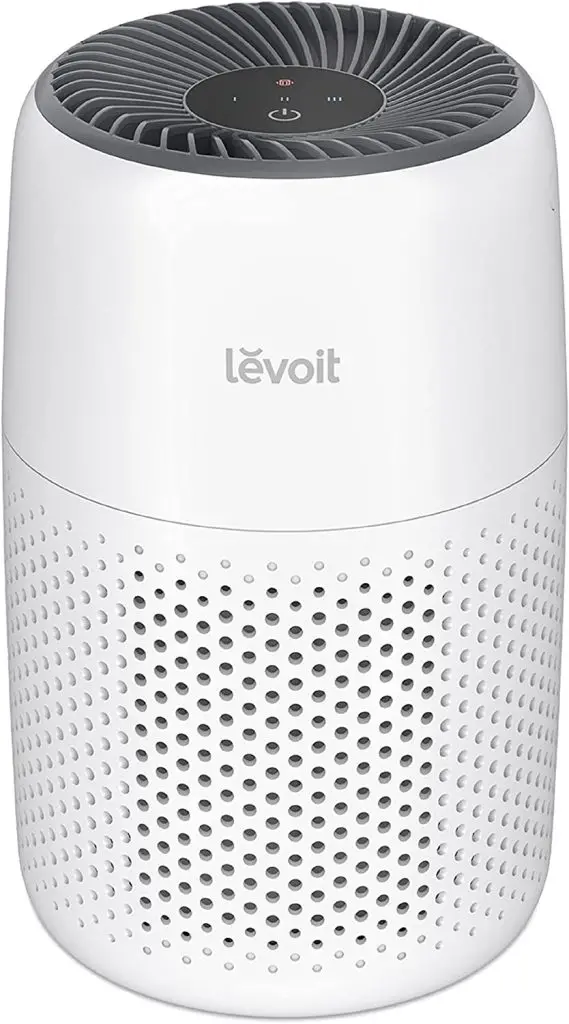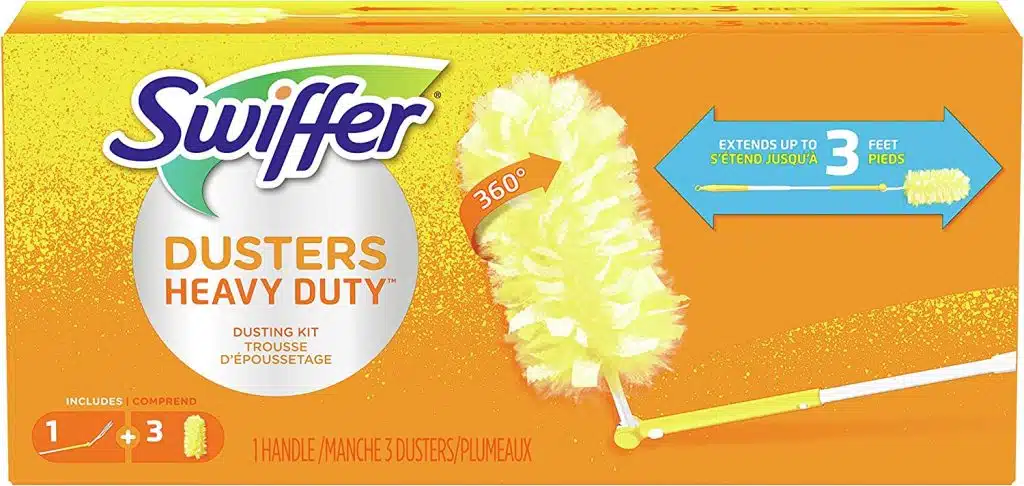This post reviews the common search “babies sleeping with mouth open.”

For more helpful and fun content, follow me on Pinterest!
In the world of newborn babies, there’s no sight quite as peaceful as a cherubic face nestled in sweet slumber. However, if you’ve ever glanced at your little one only to find their tiny mouth agape, you may wonder why their nasal passages seem to be taking an unscheduled break.
As new parents, this can lead us to wonder why.
On occasion, we would notice Annabelle sleeping with her mouth open. It usually happened when she had a big day and was SUPER tired. She would look so passed out with her mouth wide open that we couldn’t help but chuckle.
We would call it her “open mouth KO’d.”
She would also sleep with her mouth open if she had a stuffy nose or a cold, which is to be expected. That said, this only happened a handful of times and wasn’t a regular occurrence. For the most part, she breathed through her nose.
We are supposed to breathe through our noses, not our mouths. Our noses perform as a filter that helps trap bacteria, allergens, and other nasties to keep us healthy.
Therefore it’s super important to ensure your baby’s nose is functioning properly and they breathe through it more often than not. Otherwise, it could potentially mean medical conditions like a deviated septum.
As someone born with a deviated septum and an adult who still hasn’t fixed it, it feels like I have a constant stuffy nose.
Breathing is absolutely reduced, and it’s super noticeable at night too. I can only breathe through one nostril each night, and god forbid that functioning nostril gets stuffy, and then its mouth breather city. Ick. Super uncomfortable and intrusive to sleep.
We don’t want babies subjected to long-term sleep problems due to undiagnosed airway obstruction.
Studies show sleep deprivation in babies and toddlers has been linked to behavioral problems like attention deficit hyperactivity disorder or ADHD ( which I was diagnosed with at 19 ) in the future.
Trust me, even though ADHD doesn’t sound that bad compared to other behavioral problems, as someone who has it, it’s incredibly difficult to engage in some of the most basic tasks. I get easily distracted, impatient, forgetful, and disorganized.
It made my school years undiagnosed extremely challenging, not to mention motherhood EXTREMELY difficult to get ahold of. You don’t want this for your child, believe me.
Open mouth breathing could be happening for different reasons. Ruling out health conditions is important and will give you peace of mind.
From stuffy noses to deviated septums, the causes of nasal congestion can be as varied as the dreams that fill their infant minds.
This post reviews the common search “babies sleeping with mouth open.”
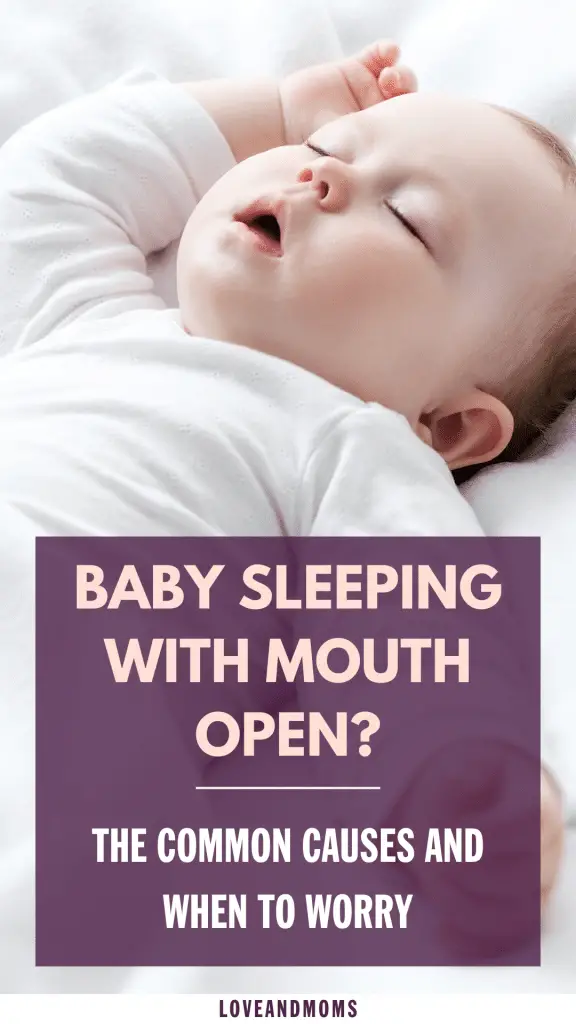
Babies Sleeping With Mouth Open
We want to ensure baby is breathing healthy and isn’t subject to breathing problems or disrupting baby’s health by discovering the underlying issue of your adorable sleeping baby and taking the necessary steps to relieve them.
To ensure your baby gets the much-needed quality sleep so your child’s development is on par with his or her age and is healthy, here are a few reasons your newborn baby is sleeping with his or her mouth open.
1. Mucous
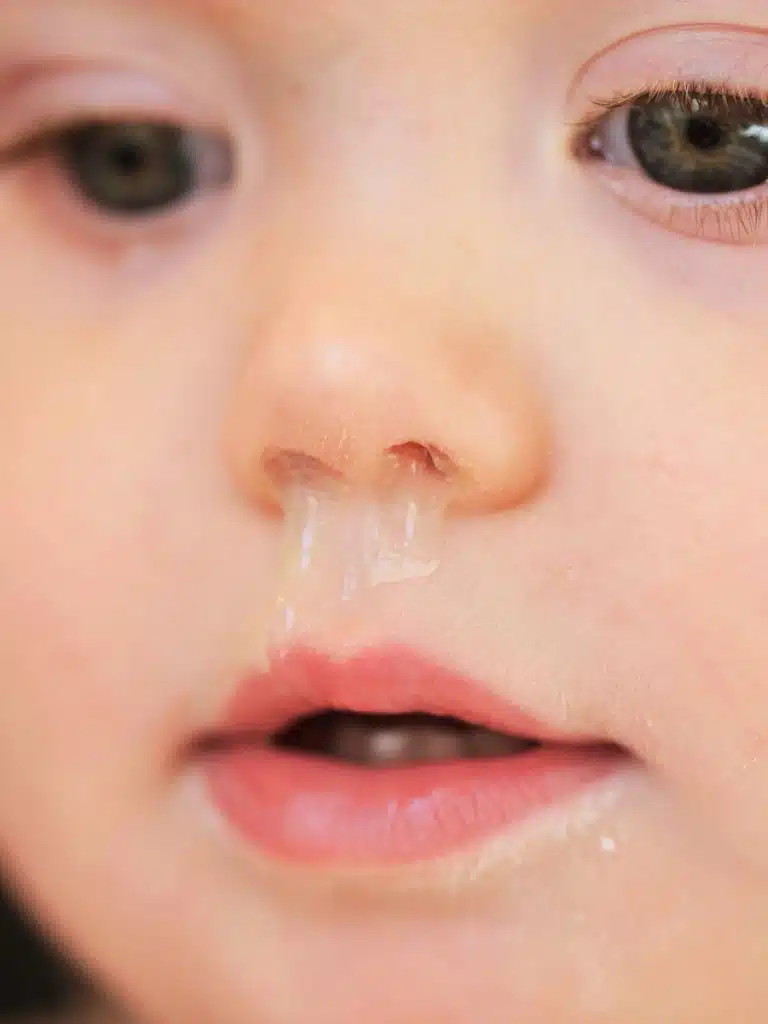
Babies have a remarkable ability to adapt to their surroundings, even when it comes to their sleep patterns. One common reason for a baby sleeping with their mouth open is the presence of excess mucus in their nasal passages.
Babies have smaller nasal passages than adults, making them more susceptible to nasal congestion. When their nasal passages become blocked or congested due to mucus buildup, they may instinctively open their mouths to breathe more easily and ensure a steady oxygen flow, just like us.
A runny nose is super annoying; allowing them to maintain a comfortable sleep and avoid any potential discomfort caused by nasal congestion is important.
However, this can be hard if they sleep with a pacifier or thumb-sucking to soothe themselves. As you can imagine, when babies can’t breathe through their noses, and their mouths are closed from self-soothing, they can have a lot of trouble breathing and getting relaxed enough to sleep soundly.
This can cause restless sleep and heavily impact their sleep quality. However, this should only happen briefly and is one of the more common causes of open-mouth breathing from your baby.
2. Sleep Apnea
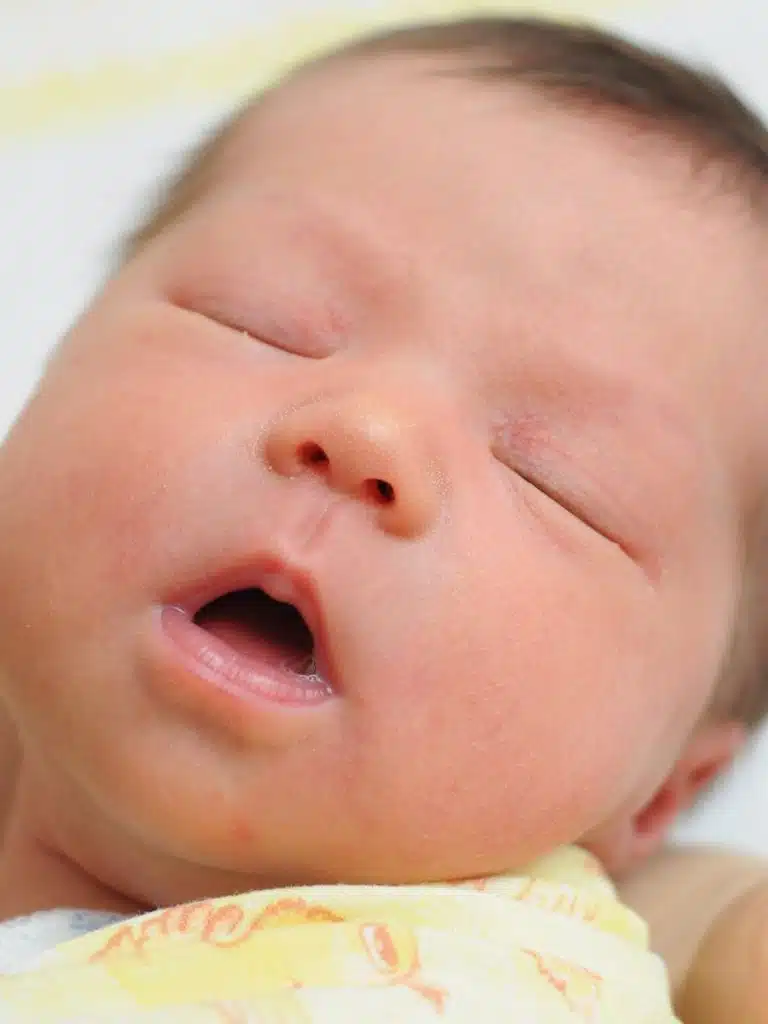
When many of us think of sleep apnea, we think of our dads, their CPap or BPap Machine, and loud snoring. My dad and father-in-law suffered from sleep apnea and knew how this breathing disorder could cause many health problems in those who suffer from it.
My dad was always tired, had high blood pressure, and made it difficult for my mom to sleep in the same room as him from crazy loud snoring.
He would stop breathing, and my mom would have to nudge him back awake to keep him breathing.
This resulted in a lack of sleep for both parties, which is no bueno.
Sometimes, one of the potential causes of chronic mouth breathing can be a sign of sleep apnea, a condition characterized by pauses in breathing during sleep.
Although less common in infants, pediatric obstructive sleep apnea can still occur and should not be overlooked.
If you notice your baby consistently sleeping with their mouth open, some sleep apnea symptoms are loud snoring, frequent awakenings, gasping or choking sounds, or a restless sleep pattern; it’s crucial to consult a healthcare professional.
These are some symptoms of sleep apnea, where the airway becomes partially or completely blocked during sleep, leading to breathing disruptions. Early identification and intervention are vital to ensure the well-being and healthy development of your little one.
We must ensure the baby gets enough air when sleeping to recover and stay healthy.
Related Reading: Baby Eczema vs Acne: How to Tell the Difference
3. Deviated Septum
This may be a common underlying medical condition regarding why your baby sleeps with their mouth open. I was born with a deviated septum, and it sucks big time.
I definitely don’t feel as rested as I should; even when I get sufficient sleep, I don’t get enough oxygen day or night.
A deviated septum means your child’s nose didn’t develop enough on one side. This can obstruct nasal breathing and reduce the overall quality of sleep and breathing.
A deviated septum doesn’t mean just temporary congestion.
This imbalance can make breathing through the nose challenging, especially during sleep when muscles relax.
As a result, babies with a deviated septum may instinctively open their mouths to compensate for the reduced airflow.
If you notice your baby frequently sleeping with their mouth open, accompanied by persistent nasal congestion or difficulty breathing through the nose while awake, it’s advisable to consult a pediatrician.
They can evaluate the situation and determine whether a deviated septum may affect your baby’s sleep habits.
A deviated septum could be one of the potential causes of mouth breathing.
It can also disrupt facial development, causing your child to need orthodontic treatment or facial therapy to fix it once they are old enough.
Unfortunately, in most cases, a deviated septum can only be fixed via surgery, which is why I’ve been dragging my feet on it, but it’s gotten to a point since turning 30 that I can’t ignore anymore.
4. Habit
If baby suffered a cold and had to sleep with their mouth open for an extended time, they may have developed a bad habit of sleeping with their mouth open just because. This is no longer the cause of a blocked nose or the result of sleep disorders.
If your newborn sleeps with their mouth open habitually, however, it can still cause risk factors as a result. Remember, our nose behaves like a filter and aids our immune systems in keeping nasties like viruses and bacteria out, and it is the healthy way to breathe.
Although habitually sleeping with your mouth open isn’t necessarily “bad,” a dry mouth is the least of your worries as it can still cause facial development issues, health issues, and problems with oral health. You can tell by the structure of someone’s face if they are a mouth breather compared to someone who isn’t.
They have a receded jaw, no jaw definition, smaller airways, and their neck blends in with their chin from their muscles not being properly used by keeping their mouths closed.
I’m sure you know people with face shapes like this, and you will forever be able to tell when someone is a mouth breather!
This can be fixed with facial therapies and orthodontic work, but it’s mighty expensive and laborious.
That being said, if your baby is sleeping with their mouth open out of habit, it’s important to encourage them to breathe through their nose as much as possible to ensure proper and healthy breathing habits.
Nose breathing is the best way to breathe.
5. Allergies
This happens to me a lot, especially with my deviated septum. Allergies can cause a lot of swelling and mucous production, rendering our noses useless for breathing. Allergies could be the cause of your baby sleeping with their mouth open.
The overall air quality has allergens, resulting in your baby breathing with their mouth open to compensate for the loss of their nose. If your baby sleeps with a closed mouth, and you notice a butt-ton of pollen in the air or on your car, there is a chance your little one is simply subject to it all and will quickly recover once it passes.
6. Tongue-Tied
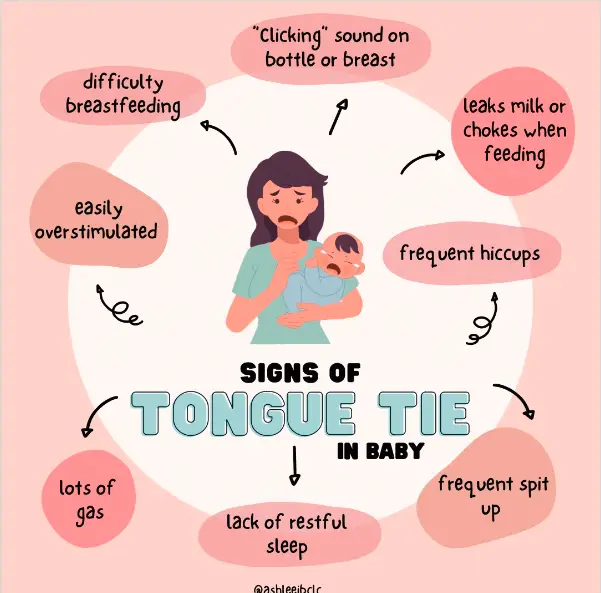
In certain instances, tongue-tie or ankyloglossia could be a cause of the mouth breathing. Tongue-tie occurs when the tissue connecting the baby’s tongue to the floor of their mouth is shorter or tighter than usual, limiting the tongue’s range of motion.
This can affect their ability to latch onto the breast or bottle properly and may lead to difficulties with feeding. Consequently, babies with tongue-tie may compensate by breathing through their mouth, even during sleep.
This can greatly impact your child’s health. If you suspect your baby is tongue-tied, watch for additional signs such as trouble sticking out the tongue, poor weight gain, or clicking sounds during feeding.
Suppose your baby has been struggling to breastfeed and eat and is breathing with his or her mouth open. In that case, it’s time to talk to your pediatrician and seriously consider the possibility of a tongue tie.
7. Congestion
When a baby sleeps with their mouth open, it could be due to congestion and general swelling of the sinuses. Similar to adults, babies can experience nasal congestion caused by allergies, colds, or sinus infections.
This congestion can lead to swollen nasal passages, making it difficult for them to breathe through their nose.
As a result, babies may naturally resort to breathing through their mouths to ensure consistent airflow.
Suppose your baby exhibits other symptoms like a runny or stuffy nose, sneezing, or coughing. In that case, congestion and sinus swelling are likely the primary culprits behind their mouth breathing during sleep.
Providing gentle nasal saline drops or using a cool mist humidifier in their sleep environment can help alleviate congestion and promote better nasal breathing for your little one.
This can happen in young children and is generally the most common reason for mouth breathing.
Related Reading: 11 Super Effective Remedies for a Teething Baby
Treatment Options
Here are some next steps to take, home remedies, and different ways you can help them get the baby sleep they need in this important stage of their life.
1. Cool-Mist Humidifier
This is a must year-round if you live in a hot and dry climate. Using a cool mist humidifier can be incredibly helpful in encouraging babies to sleep with their mouths closed.
The humidifier adds moisture to the air, creating a more comfortable environment for your little one.
Dry air can exacerbate nasal congestion and cause discomfort and potential nose bleeds, leading babies to breathe through their mouths.
By introducing adequate humidity, the cool mist humidifier helps to soothe and moisturize their nasal passages, reducing congestion and promoting clearer breathing through the nose. As a result, babies may naturally shift to breathing through their noses during sleep, allowing their mouths to remain closed.
We use the LEVOIT 4L Humidifier for Annabelle’s room, and we love it.
The gentle and consistent airflow provided by the humidifier can contribute to a more peaceful and uninterrupted sleep for your baby, relieving any discomfort caused by nasal congestion.
Whether it’s habitual or a result of a temporary setback like a cold or allergies, this can be a helpful way to remedy mouth breathing!
Other Cool Mist Humidifiers I Recommend:
- Pure Enrichment MistAir Ultrasonic Cool Mist Humidifier: My husband and I sometimes use this to give our plants extra moisture in our room or living room. The only downside is that it can mold quickly, so cleaning it frequently with vinegar is a must.
- 50-Hour Ultrasonic Cool Mist Humidifier: If you don’t want to be bothered with frequently refilling your humidifier, this 50-hour cool mist humidifier is for you!
2. Suck the Snot
Using a bulb syringe if your baby is hella mucousy can help relieve the pressure from your baby’s sinuses!
A bulb syringe or snot sucker is a great way to get all that mucous out of your baby’s head and encourage them to breathe through their nose.
You can gently squeeze the bulb, insert the tip into your baby’s nostril, suction out excess mucus, and relieve congestion.
Some people like using a nasal aspirator, so it’s up to your preference for removing mucous. Clearing their nasal passages can make it easier for babies to breathe through their noses, reducing the need for mouth breathing during sleep.
Other Snot Suckers I Recommend:
- Frida Baby Nasal Aspirator: I prefer this guy over the bulb because the air force in your diaphragm is way stronger than a bulb’s. As a result, you get WAY more snot and yuckies out. There is no danger of snot going into your mouth since there is a filter, and it’s way more effective, in my opinion.
- GROWNSY Nasal Aspirator: If you want the strength of your diaphragm and better effectiveness than a bulb, try this nasal aspirator.
3. Saline Wash
Using a saline solution with sucking the snot is a great way to rid baby of their mucous. A saline rinse is helpful in not only removing mucous but it can also remove bacteria, dust, and other allergens causing baby to get snotty in the first place.
Nasal sprays help loosen that tenacious mucous so it comes out relatively easily when ready to suck it out. Use a saline wash as step one of removing the snot from baby’s head, and you will be shocked how much comes out! You’ll be like damn baby girl no wonder you couldn’t breathe!
Other Saline Sprays I Recommend:
- Frida Baby Saline Spray: An effective and smaller option for baby.
- Zarbee’s Baby Nasal Spray: This guy has aloe in it to help moisturize the baby’s nasal passages and clear them out.
4. Air Filter
If you suspect baby’s mouth is open because it’s allergy season, an air filter could be beneficial. Air filters, especially those equipped with HEPA (High-Efficiency Particulate Air) filters, effectively remove airborne particles and allergens from the surrounding environment.
These filters capture dust, pet dander, pollen, and other irritants contributing to nasal congestion and allergies in babies.
By reducing the presence of these triggers in the air, an air filter promotes cleaner and fresher indoor air quality, making it easier for babies to breathe through their noses.
With improved air quality, nasal passages are less likely to become congested, allowing babies to breathe comfortably and naturally through their noses while asleep.
Integrating an air filter into your baby’s sleep environment can help create a more conducive atmosphere for peaceful and unobstructed breathing, ultimately encouraging them to keep their mouths closed during sleep.
Other Air Purifiers I Recommend:
- AROEVE Air Purifier: If you want to control the air speed, this guy is for you!
- Pure Enrichment PureZone Mini Portable Air Purifier: If you want something simple, small, compact and you can travel with, this air purifier is perfect.
5. Dust Ceiling Fans
You would be surprised how much dust, fluff, and crud collects on those Ceiling fans. If baby has a ceiling fan in their room, clean it as much as possible to ensure no crud build-up is distributed throughout the room.
It’s a good practice to clean them all over the house too.
Dirty ceiling fans can result in us breathing in gross nasties that manifest in sore throats and snotty or stuffy noses.
I love the Swiffer Heavy Duty Dusters to get the job done. Super affordable and effective.
Check your ceiling fans and see if they need good dusting.
6. Vacuum Frequently
Another great way to remove dust and unnecessary allergens from your home is by vacuuming as much as possible, especially if you have carpet and pets.
Lots of allergens can get trapped in the carpet and cause all of us to be snotty and stuffy.
It’s all about keeping as much snot-inducing crap out of the house as possible.
Related Reading: 15 Best Baby Constipation Remedies That Work Fast
When to See Your Pediatrician
Let’s say you’ve done everything you could and ruled out a cold, allergens, and other common reasons for babies sleeping with mouth open. Home remedies won’t resolve enlarged tonsils and other airway obstruction causes. Your pediatrician will run tests to find out what the culprit is. For mild cases, baby may be prescribed Flonase or other nasal spray steroids to open up their sinuses to ensure they can breathe properly again.
Some causes may need surgery, and it’s up to you whether you want to subject baby to the treatment now or as they get older. It really depends on how much you believe their sleep and overall development are being disrupted based on your child’s mouth breathing.
Babies Sleeping With Mouth Open
Whether your baby is a newborn or nearly two, ensuring they develop healthy breathing habits will help them sleep and feel better. Always check with your pediatrician if something isn’t right, and trust your gut.

